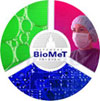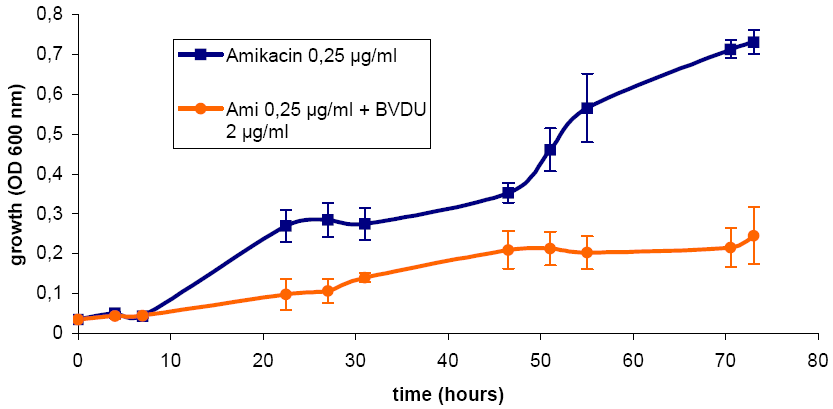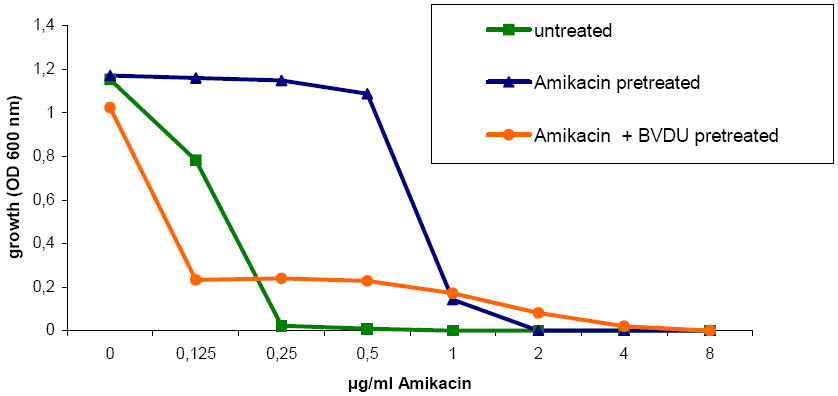Inhibition of chemoresistance and enhancement of chemosensitivity
 The Dresden research company RESprotect GmbH was founded in 2000 and is located close to the clinics of the University of Dresden and the Max Planck Institute of Molecular Cell Biology and Genetics. RESprotect is focused on developing new therapeutics designed to inhibit chemoresistance and enhance chemosensitivity. Main targets are cancer and infectious diseases. The drugs are used in combination with conventional therapies.
The Dresden research company RESprotect GmbH was founded in 2000 and is located close to the clinics of the University of Dresden and the Max Planck Institute of Molecular Cell Biology and Genetics. RESprotect is focused on developing new therapeutics designed to inhibit chemoresistance and enhance chemosensitivity. Main targets are cancer and infectious diseases. The drugs are used in combination with conventional therapies.
1. Cancer
More effective chemotherapy with fewer side effects:
Cancer is the second leading cause of death in Europe and North America. RESprotect is focusing on the inhibition of chemoresistance and the enhancement of chemosensitivity against cytostatic treatment. This is supposed to increase the recovery chances for patients and to reduce the side effects of chemotherapy.
RP-BVDU co-treatment inhibits chemoresistance and enhances chemosensitivity
in tumour cells:
Resistance to chemotherapy is a common symptom associated with cancer
treatment. It occurs in association with various cytostatic agents.
This resistance is the main reason for the failure of chemotherapy.
Because of the high and increasing incidence of cancer, an improvement
in the use of chemotherapy as a cancer treatment method has a high
ethical, social and economic significance.
Resistant tumours often share a similar characteristic, i.e. some of their genes have multiplied (amplified) themselves. These are mostly oncogens (cancer producing genes) or genes which pass on resistance against several cytostatic agents (multidrug resistance genes = MDR). These MDR genes produce a protein (P-glycoprotein) which removes foreign or cytostatic substances from the cell. If the MDR genes reproduce themselves, then they will produce a similar increased amount of Pglycoprotein. Consequently, the drugs are driven out of the cancer cells, thereby losing their effectiveness. The tumour can thus grow uncontrolled. Since it has been discovered that the first steps of gene amplification are based on a recombination mechanism, research has been concentrating on developing anti-recombinogenic substances which are active in dosages applicable to humans. The antirecombinogenic substance RP-BVDU meets both requirements. It inhibits the induction of gene amplification mediated multi-drug resistance (MDR) by adriamycin in tumour cells.
Clinical pilot study
RESprotect announces the commencement of
a phase I/II clinical pilot trial of RP-BVDU for patients with
metastatic breast, ovarial, lung and pancreas cancer. Phase I of the
trial will examine pharmacokinetics and establish a maximum tolerated
dose (MTD) of RP-BVDU. Afterwards, patients will be treated at the MTD
dosage to continue assessing safety and clinical anti-tumour activity
of the compound.
2. Infectious diseases
Two main factors can influence whether bacteria will become insensitive to an antibiotic: the prevalence of resistance genes which give rise to proteins that shield bacteria from an antibiotic's effects, and the extent of antibiotic use. When an antibiotic attacks a group of bacteria, individuals that are highly susceptible to the antibiotic will die. But bacteria that have some resistance from the start, or that acquire it later through mutation or gene exchange by recombination, may survive. Those cells, facing reduced competition from susceptible bacteria, will then go on to proliferate. When confronted with an antibiotic, the most resistant cells in a group will inevitably outcompete all others.
RP-BVDU co-treatment inhibits chemoresistance and enhances chemosensitivity
in bacteria:
RP-BVDU
was tested with Escherichia coli J53. This strain is carrier of plasmid
RP4, leading to resistance against Ampicillin, Tetracyclin and
Kanamycin. Simultaneous treatment with Amikacin and RP-BVDU leads to
inhibition of chemoresistance. Amikacin + RP-BVDU pretreated bacteria
retain their sensitivity.

Fig. 1: Inhibition of Amikacin resistance of E. coli J53 (RP4) by co-treatment with RP-BVDU (3-4 parallel cultures each).

Fig. 2: Minimal growth inhibition concentration of Amikacin for different pretreated E. coli J53-strains.
Contact:
Prof. Dr. Rudolf Fahrig
Fiedlerstr. 34
01307 Dresden, Germany
phone: +49 351 4503200